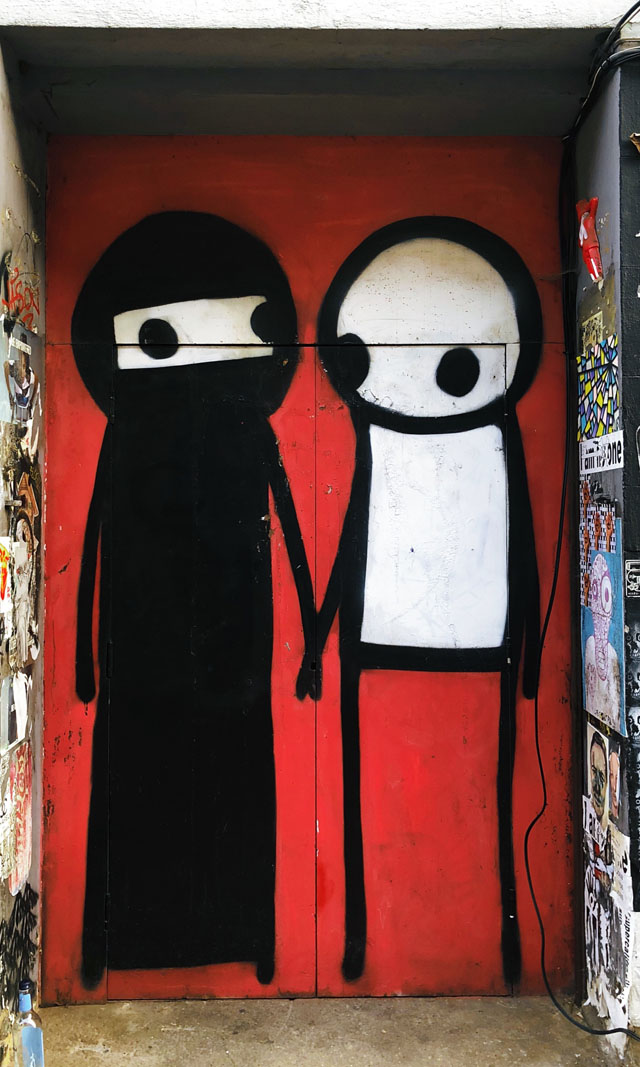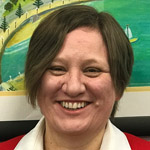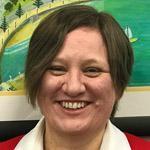
The evening of the Christchurch mosque attacks I checked in with Mum, knowing the day’s events would have triggered strong feelings for her. My brother—her son, John—was killed in 1997, in a mass shooting at Raurimu. I know this because the Christchurch shootings triggered grief spasms for me, and I’m sure for my sister Heather, too.
Mum didn’t talk about John, but she said these people died because they were in the ‘wrong place at the wrong time’. This was something she often used to say about John and how he was killed. So I wasn’t surprised to hear her processing what happened in Christchurch in that way.
However, these 50 deaths were not a case of ‘wrong place, wrong time’. Those murdered were in the right place—a sacred place, a place of prayer and worship, the beating heart of their faith community, and a safe place for friends and family to gather.
Right Place, Right Time
They were there at the right time—a divine appointment kept on Friday lunchtimes each week to strengthen the outworkings of their beliefs in everyday life, and to meet their personal and corporate obligation to honour God. As the Quran says: ‘O believers! When the call to prayer is made on Friday, then proceed diligently to the remembrance of Allah and leave off your business. That is best for you, if only you knew,’ (Surah 62:9, Dr Mustafa Khattab, The Clear Quran).
Having a family member shot and killed is a traumatic loss that (like suicide) offers no time for goodbyes. What I have learnt is that there is no right or wrong way to grieve—we will do what we need to do in the way that is right for us. Friends can help, sometimes as much by their silent presence as by their words. However, absence is not usually helpful—so never let the fear of saying the wrong thing tempt you to step back from those you love. In times of loss we need people, even though we may want no one. It is a strange time.
What I have learnt is it is important to talk about what we’re feeling, perhaps keeping a journal so that we can see that our worst days do not stay ‘worst’ for ever—recovery does happen, a journey that cycles from good days to bad days, but the bad days do eventually become less.
I learnt it is important to have structure to the day, to commit to doing those basic necessities of eating, drinking and moving—even though these things have no attraction in themselves anymore. I learnt it is not the time to make major decisions in the midst of trauma. I learnt it is therapeutic to do kind things for yourself. Most of all, I learnt it is helpful to lean into grief and give yourself permission to feel miserable—awful in fact.
Eventually, I learnt God is able to redeem even the worst human act against another—that empathy and care, love, and even gratitude, grows from wretched souls and scarred lives. And, of course, the measure of a good society is when we learn from tragedy and make positive changes. I am already heartened to hear that our gun laws will be strengthened.
Only a broken human being finds trauma easy. Our pain and horror at what happened in Christchurch is testimony to the inherent goodness—Godness—of our humanity. Our screams of ‘No!’ are echoing God’s pain and reminding us who we are all created to be: agents of love and care in our world, people made in God’s image. Everything and everyone that tries to pull us from this is a lie from Evil.
There is only ‘us’
There is no ‘other’, there is only ‘human’. There is only ‘us’. As our Prime Minister has said, ‘This [act] is not who we are.’ Xenophobia is not who we are. Not in Aotearoa New Zealand. And yet … sometimes it is.
We are hearing from Muslims who are routinely sinned against by prejudice, racism and bigotry. Other people groups could, sadly, say the same – Māori and members of the LGBTI+ community amongst them. And so my hope and prayer is that we will embrace the wake-up invitation to change that this tragedy presents.
Friday 15 March was a bad day, one of our worst. But I believe we may yet see Christchurch as ‘the right place’—because it has already proven itself to be a place of beauty, love, compassion and resilient strength. And that this time in history may yet become ‘the right time’, as nationally and globally we rally to say ‘enough’. And then take every step that will make that pledge reality.
I have learnt through loss that life is bigger and stronger than death.
Kia kaha (be strong!) to all who mourn, to all who are afraid, to all who are breathing the hardship of trauma.
 Christina Tyson has been a Salvation Army officer (minister) for almost 30 years, serving in her husband’s homeland of Australia as well as her native New Zealand. For 16 years she was involved in Salvation Army communications, but now works to support local churches and recruit future leaders. She and her husband Keith live in Wellington, New Zealand, and have three adult children.
Christina Tyson has been a Salvation Army officer (minister) for almost 30 years, serving in her husband’s homeland of Australia as well as her native New Zealand. For 16 years she was involved in Salvation Army communications, but now works to support local churches and recruit future leaders. She and her husband Keith live in Wellington, New Zealand, and have three adult children.

Christina Tyson has been a Salvation Army officer (minister) for almost 30 years.For 16 years she was involved in Salvation Army communications, and now works with her husband as pastors of a Salvation Army church and community centre in Newtown, Wellington.